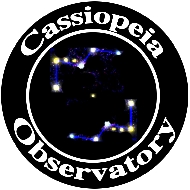Book Review - The Lost Constellations
Posted: 12 December 2015
 The Lost Constellations
The Lost Constellations
by John C. Barentine
520 pages (including Table of Contents, Appendix, Bibliography, and Index)
$44 (paperback)
Published 2015
I became acquainted with the author, Dr. Barentine, through his work at the International Dark-Sky Assocation after I started the pursuit of the IDA "International Dark Sky Park" designation for Oracle State Park in early 2014. When I learned that he had written this book I knew I had to get it.
The first section of the book, "Part I: Toward The Modern Night Sky" provides a short (~30 pages) discussion of what the constellations are and how their patterns were perceived, defined, and used over the past several thousand years, leading up to our current official 88 constellations.
The subtitle for "The Lost Constellations" is "A History of Obsolete, Extinct, or Forgotten Star Lore", which is an accurate description of what is included in the book's main section, "Part II: The Lost Constellations" (~430 pages). Twenty-seven "lost constellations" are covered in this section, from "Anser" to "Turdus Solitarius/Noctua". For each constellation there is explanatory text on its origin and history, iconography, and disappearance, along with detailed black and white historical illustrations. Here is an example of one of the illustrations:

In describing the historical perspective of each constellation the book quotes short passages from antiquity, some dating more than 2000 years ago, with most being from the 1600s, 1700s, and 1800s as astronomy was gaining respectability. These passages add background and drama to the creation and disappearance of the constellations. Along the way, you will learn some history of, for example, humans, literature, sailing (constellation Argo Navis), cats (constellation Felis), and electricity (constellation Machina Electrica). (Did you know that an astronomer by the name of William Gilbert (1544-1603) coined the term "electricity"? I didn't until I read the book.)
"Part III: Conclusion" (4 pages) wraps up the book by briefly recounting the history and purpose of constellations. It then draws some conclusions about the "lost constellations".
The book ends with a list of the current official 88 constellations and an extensive bibliography.
You can learn more about the book and Dr. Barentine at the web site "The Lost Constellations". The web site shows the complete Table of Contents and some example illustrations from the book.
Summary
This book is not your typical dry technical read. As the author states in the Preface, the book is a "very human story that transcends astronomy itself, somewhere at the confluence of history, mythology, folklore, exploration, and psychology." You will learn a lot from the book, but you will also be entertained by the background stories for each of the "lost constellations". If you want to learn more there are extensive footnotes on many pages and a thorough bibliography at the end of the book. There are just a few typos and one reference to color on a B&W figure, but they do not detract from the book.
The book has a few references to a "Volume 2". The author revealed to me that Volume 2 will be published in early 2016.
As the author discusses in the Preface, the book is the result of several decades of interest in the night sky during which he collected a considerable amount of information on constellations, both current and past. The author notes that a prior work (Richard Hinckley Allen's "Star Names: Their Lore and Meaning", 1899) is the definitive written work on the history of the constellations. I predict that "The Lost Constellations" will rightfully take its place alongside Allen's book as the updated definitive work.
If you are interested in the history of astronomy or want to learn more about the night sky, "The Lost Constellations"* is well worth reading.
* Purchasing with this Amazon link supports continuing to provide product reviews to you. Thank you.
Comments are welcome using Email. If you are on Twitter you can use the button below to tweet this review to your followers. Thanks.
Cassiopeia Observatory Home Page
Copyright ©2015 Michael L. Weasner / mweasner@me.com
URL = http://www.weasner.com/co/Reviews/2015/Lost_Constellations/index.html

